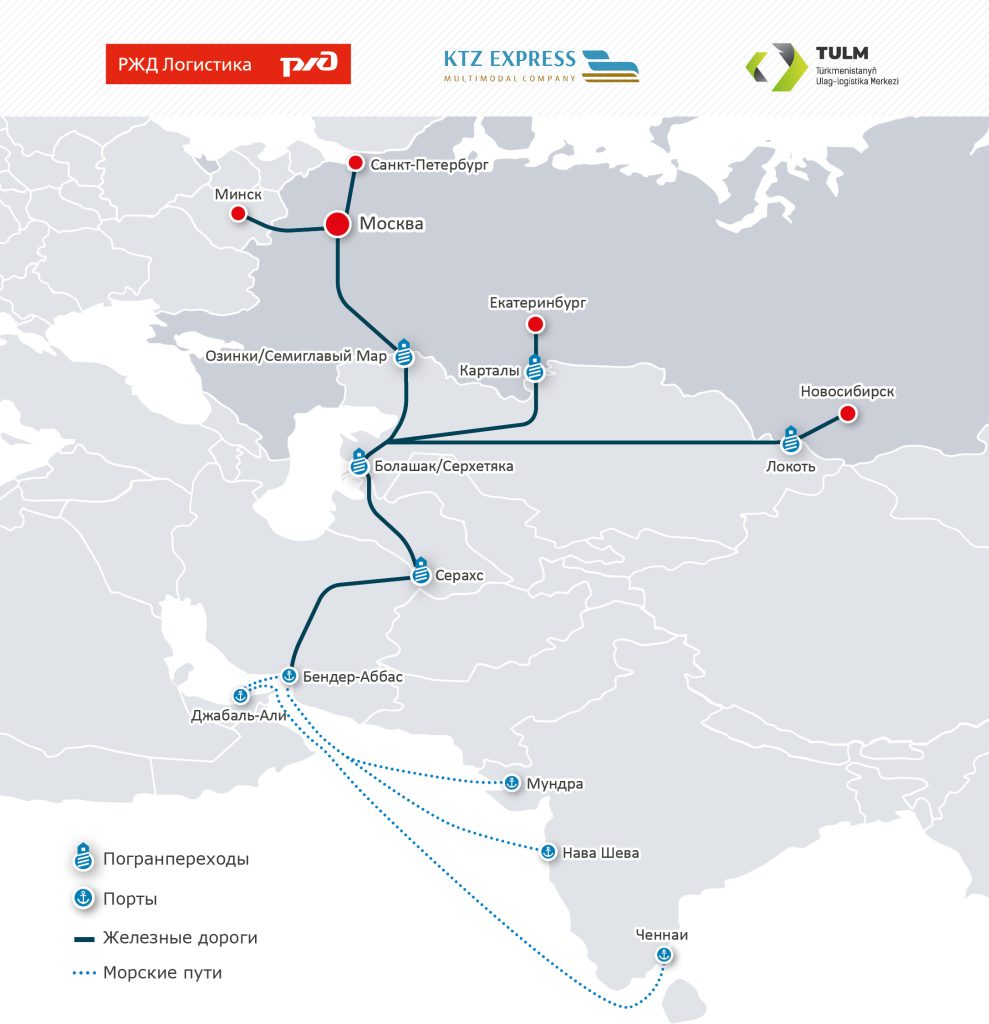In Q1 2023 cargo traffic on the eastern branch of the International Transport Corridor North-South (INSTC), which passes through Kazakhstan and Turkmenistan, increased 3.3 times, said Russian Deputy Minister of Economic Development Dmitry Volvach at the plenary session of the 8th Caspian Media Forum in Astrakhan.
The dynamics of cargo traffic growth along the three branches of the INSTC is as follows:
- Western route (Russia–Azerbaijan–Iran) – 2 times
- Trans-Caspian part of the MTK – 3 times
- Eastern part (Russia–Kazakhstan–Turkmenistan–Iran) – 3.3 times
In general, the cargo freight on the North-South ITC grew by 2 times in the first quarter of 2023.
Cargo traffic along the ITC “North-South” in 2022 exceeded 16 million tons. By 2030, the exports expected to increase to 35 million tons, and imports – to 6 million tons.
Promising Russian exports under the North-South corridor include food, primarily wheat, as well as ferrous metals, wood, coal, chemical products, and fertilizers. The key imported goods may be mineral products, foodstuffs, primarily fruits, beverages, vegetable and animal oils, and ferrous metals.
“The development of the North-South ITC will allow Russia not only to increase trade turnover with promising markets in the Middle East and Central Asia, but also to get an alternative route of trade with India,” Volvach added.
Earlier, Dmitry Murev, General Director of JSC “Russian Railways Logistics” reported that transportation on the railway network between Russia and Turkmenistan via the eastern route of the INSTC in January – August 2023 surged by 57% compared to the same period in 2022. ///nCa, 20 September 2023
#North-South_ITC, #cargo_traffic, #increased,
